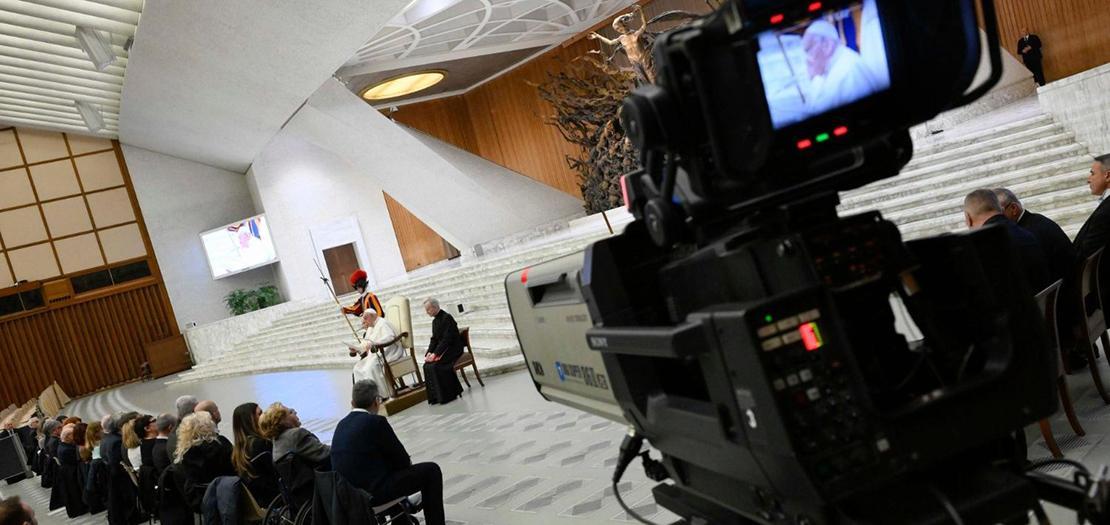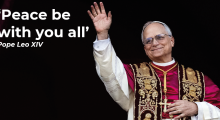Issued by the Catholic Center for Studies and Media - Jordan. Editor-in-chief Fr. Rif'at Bader - موقع أبونا abouna.org

In a world “characterized by disinformation and polarization, as a few centers of power control an unprecedented mass of data and information,“ it is ever more urgent, writes Pope Francis, to “disarm communication” and purify it of aggression.
In his message released to mark the 59th World Day of Social Communications, the Pope notes that "Too often today, communication generates not hope, but fear and despair, prejudice and resentment, fanaticism, and even hatred.”
Lamenting the fact that communication often simplifies reality to provoke instinctive reactions, using words as weapons and spreading false or distorted information, he warns that such practices create division and prevent the possibility of building genuine hope.
“All conflicts start when individual faces melt away and disappear‘. We must not surrender to this mindset.”
The risks of aggressive communication
The Pope highlights several troubling trends in modern communication, including a tendency towards competition and domination that prevails in many forums.
“From television talk shows to verbal attacks on social media, there is a risk that the paradigm of competition, opposition, the will to dominate and possess, and the manipulation of public opinion will prevail,” he writes. “Identifying an ‘enemy’ to lash out against appears indispensable as a way of asserting ourselves.”
This approach, the Holy Father says, erodes community and undermines the common good.
And warning against the “programmed dispersion of attention” caused by digital systems that prioritize market-driven profiling, he explains that this phenomenon fragments interests, weakens social bonds, and hampers our ability to listen and empathize. The result, he says, is a society increasingly isolated, incapable of collaborative action, and urgently in need of hope.
Hope as the antidote
Hope, the Pope continues, referencing the Gospel message and the current Jubilee Year, is not an easy virtue but a “risk that must be taken.”
Drawing on the words of French author and WWI soldier, Georges Bernanos, who called hope “a hidden virtue, tenacious and patient,” he points out that for Christians, hope is essential and transformative.
As Pope Benedict XVI notes in his encyclical Spe Salvi, “The one who has hope lives differently; the one who hopes has been granted the gift of a new life. The one who hopes has been granted the gift of a new life.”
Thus, Pope Francis urges Christian communicators to “always be ready to make [their] defence to anyone who demands from [them] an accounting for the hope that is in [them]; yet do it with gentleness and reverence.” (1 Pet 3:15-16)
By embodying gentleness, closeness, and respect, communication, he continues, can foster openness and friendship rather than defensiveness and anger.
Transformative communication
“I dream of a communication capable of making us fellow travelers,” Pope Francis writes in his Message, describing an approach that walks alongside others, especially in moments of struggle.
Such communication, he adds, should focus on beauty and hope, generating empathy and commitment even in seemingly desperate situations.






